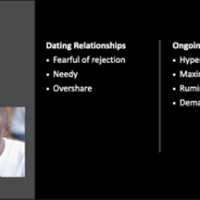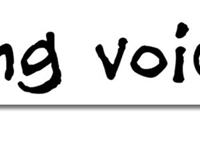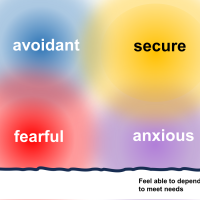 Dr Robert Sapolsky in the introductory lecture in his series – Introduction to Human Behavioural Biology.
Dr Robert Sapolsky in the introductory lecture in his series – Introduction to Human Behavioural Biology.
He spends the hour outlining and giving examples of the perils of categorical thinking.
Most phenomena we might study exist on a continuum. To break this down into manageable chunks we create categories and name them. This allows us to talk about the differences, between red and blue for instance.
Yet these categories are influenced as much by our culture, our language, our chosen discipline and it’s chosen set of assumptions about the world just as much if not more than they emerge naturally from the phenomena itself that we are attempting to describe.
And, as we get closer to the boundary between two categories that we create the differences and similarities become more confusing – your blue-green may be my green-blue. Even within a category we don’t have a uniform phenomenon – there are many colours we might call “blue”.
- when we pay too much attention to categories we can’t easily differentiate two facts that fall within the same category
- when we put up boundaries we have trouble seeing how similar things are on either side of the boundary
Sapolsky interchanges the term “category” with “bucket” – categories are merely useful buckets, temporary placeholders holding a chunk of a continuum.
It seems that psychiatry rejoices in having become a classic case study in what happens when categories become more important than the phenomena they attempt to describe, especially when built upon flakey assumptions. Yet still it refuses to “think outside the bucket” and fails to see that the bucket it has its head stuck in was simply a convenient, temporary place in which to put its ideas.
Diagnoses are simply buckets created by committees to represent clumps of symptoms observable by looking through a chosen lens of interpretation [which would seem to be something like: one eye closed standing on one leg and wearing a large yellow bucket, with fingers in each ear, singing “talk to the hand!”].
And they say we lack insight and need drugs?
The categories we use only exist as part of a framework that is held within the minds of hose who use it within their discipline. Each discipline has its own framework of buckets – as does each culture – and we each have our own buckets too.
The the world was not made and is not organized into the buckets – they are entirely of our making. The buckets are merely a useful way of thinking – a shorthand and something handy in which to hold and name our ideas .
The difficulties arise when we insist that the buckets are real, and that our buckets are the only useful way to organise our thinking and that all facts must be squeezed into into our favoured scheme of buckets.
Ode to Psychiatry –
There’s a whole in your bucket, dear Liza, dear Liza.
There’s a hole in your bucket dear Liza, a hole.
Related articles
- Robert Sapolsky: The uniqueness of humans (mind-revolution.org)




































































































As a psych NP I see the good and the bad in medication use….often lifesaving good. But not for everyone, not for every diagnosis…. We all need to be careful not to sound like bucket wearing crackpots.
LikeLike
Hi Nina
Wearing a bucket can have it’s advantages – I find a yellow one , as modelled in the photo, to be highly efficacious for lifting my energy levels.
I would though counsel a harm reduction approach to bucket wearing, and suggest making holes to see through.
I think remaining mindful of the bucket – and remembering we can take it off – is perhaps key.
“crackpot” – I wonder, is that a pun?
LikeLike
Brilliant! Exactly, thanks for this 🙂
LikeLike
Hi Sarah,
We’re glad you like it.
and you’re very welcome.
k
LikeLike